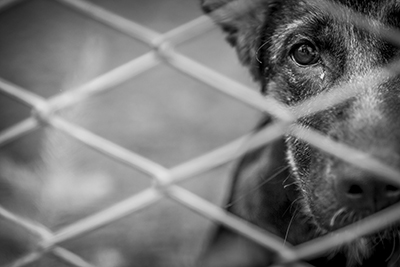
I recently blogged about this year’s CNN hero Pen Farthing and his efforts to help the strays of Afghanistan, and to reunite servicemen with the animals they adopted while in Afghanistan. Motivated by his heroic work, I decided to blog once a month about inspiring animal organizations. As a shelter vet, I often encounter amazing people and organizations dedicated to helping animals. This month I want to spotlight the Prison Pet Partnership in Gig Harbor, Washington.
What is prison pet partnership?
According to their website, Prison Pet Partnership was founded in 1981 by Sister Pauline—a Dominican nun, and Dr. Leo Bustad—the former dean of the Washington State University College of Veterinary Medicine. The founders both believed that the human-animal bond could help rehabilitate inmates. The program was started within the Washington Corrections Center for Women (WCCW) with the goal of teaching inmates valuable skills, such as grooming, animal training and preparing dogs to become service dogs. Since its inception, the Prison Pet Partnership has worked with over 700 dogs, training them to be service, therapy or seizure dogs, as well as well-trained family pets. The Prison Pet Partnership not only helps rescue animals from shelters and rescue groups, but also helps inmates gain practical skills to help them find a job after they serve their sentence. The inmates gain a temporary companion that gives them unconditional love, teaches them about responsibility and gives them a sense of accomplishment when their animals graduate to become service animals or someone’s beloved pet.
Prison Pet Partnership operates a kennel and grooming facility within the Washington Corrections Center for Women. The inmates learn to groom and board dogs and cats at the facility and ultimately become licensed pet groomers.
Inmates also learn how to train service dogs. During the intense training period, the dogs stay with the inmates and develop a strong bond with their trainers while offering their companionship. The requirements for becoming a service dog are rigorous and some dogs don’t meet those standards. However, since they are well trained, they make outstanding pets and are adopted by loving families. Prison Pet Partnership is a win-win proposition: the rescued animals are winners, the deserving recipients of the service animals are winners and the inmates who gain companionship—while training their animals and developing valuable work skills—are winners. Ultimately, the communities that the rehabilitated inmates return to are winners too.
To find out more about this amazing organization that helps animals, people with disabilities and incarcerated women, click here.
If you have any questions or concerns, you should always visit or call your veterinarian -- they are your best resource to ensure the health and well-being of your pets.
